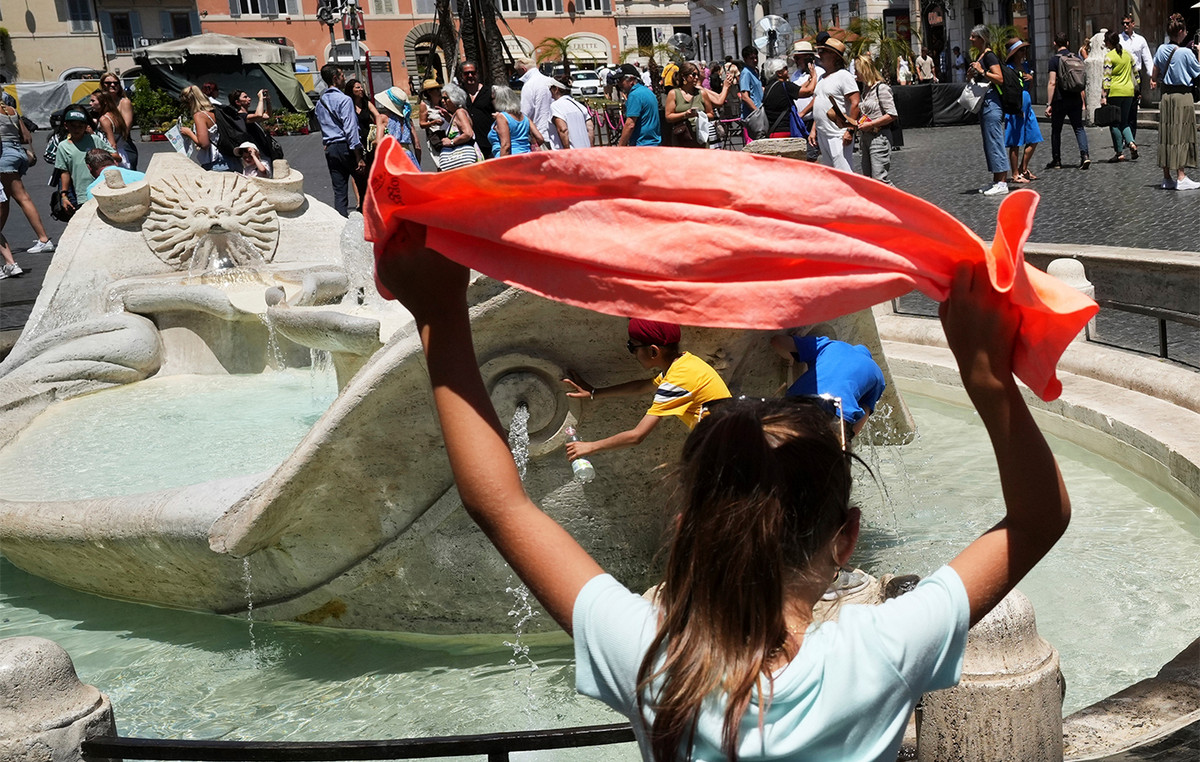The commission of the Chamber of Deputies created to monitor the situation of the Yanomami population in the region of Waikás, in the north of the country, approved, this Wednesday (30th), a report that proposes to increase the punishment of those who carry out research, mining or extraction of resources minerals in lands without authorization in traditionally occupied lands, as well as proposes to reinforce the ban on mining in indigenous lands.
Currently, the legislation in force states that anyone who researches, mines or extracts mineral resources without the relevant authorization, or in disagreement with the one obtained, may be sentenced to a prison sentence of six months to one year, plus a fine. The law provides that the same penalties apply to those who fail to recover the researched or exploited area, under the terms of the authorization or determination of the competent body.
The commission’s report wants that, if the crime is committed on indigenous lands, the penalty be increased to one to two years of imprisonment, plus a fine. The penalty would be doubled for anyone who finances or pays for the commission of any of these crimes.
The nearly 130-page report was prepared by federal deputy Joênia Wapichana (Rede-RR), who is indigenous. The document brings a draft bill to amend this point of legislation.
It also brings a draft of the Proposed Amendment to the Constitution “seeking to highlight what the Federal Constitution already determines”, he says. In this case, the “complete prohibition of mining activity in indigenous lands and guarantee to the communities of being able to veto any activities in their territories that are contrary to their interests”.
The intention is to make it clear that only indigenous people will be able to carry out mining activities on their lands, in which case the activity will be directly related to the socio-cultural aspects of the communities, with commercialization prohibited.
In Wapichana’s assessment, there are elements that can “indicate the humanitarian tragedy that is taking place within the Yanomami indigenous land”. She mentions that there is “widespread social disruption” due to the “unbridled increase in illegal mining”.
“The condition of insecurity and misery, increased by the presence of illegal mining in unprecedented proportions, by the destruction of forests and the contamination of rivers, lead to malnutrition, death from malaria, social breakdown, alcoholism, the enticement of young people and the tragic cases of violence, especially against women and children,” he wrote.
Other points in the approved report recommend an urgent request to the Ministry of Justice for the adoption of measures that lead to the immediate withdrawal of illegal mining from the Waikás region, apart from suggestions for inspections with the support of the Federal Audit Court (TCU).
One of them would be to verify the application of resources in the years 2020, 2021 and 2022, by the Special Indigenous Sanitary District (DSEI) responsible for assisting the Yanomami. This is because, according to the opinion, “despite having received more than R$ 190 million for health care in the last two years, the indigenous territory, located in the states of Amazonas and Roraima, registered an accelerated worsening of health indicators”.
Another inspection would be on the role of the Ministry of Justice and Public Security in guaranteeing security and combating illegal mining in indigenous lands.
The document also suggests forwarding the report to the Federal Public Prosecutor’s Office “in view of the considerable evidence of crimes committed and acting with impropriety by Mr. Marcelo Xavier, president of the National Indian Foundation (Funai), and other managers of the Funai, especially with regard to direct and indirect support for illegal mining in indigenous lands”.
The document also requests support for the approval of legislative matters already presented in the Chamber of Deputies and the Federal Senate that guarantee full ownership of indigenous lands, in addition to preserving the environment and combating the crime of invasion of public lands based on fraud. and falsification of property deeds.
They cite, for example, Bill 4741/2019, which establishes guidelines and objectives for public policies for the sustainable development of traditional peoples and communities, Bill 5490/2020, which creates the National Plan for the Eradication of Mercury Contamination , and Bill 4347/2021, which establishes the National Policy for Territorial and Environmental Management of Indigenous Lands.
During the meeting this Wednesday for the approval of the opinion, Joênia Wapichana said that she would add a recommendation for the 2023 budget to strengthen the financing of bodies responsible for the protection of indigenous peoples.
THE CNN sought the Ministry of Justice and Funai for a position on the content of the report and is awaiting a response.
Source: CNN Brasil
I’m James Harper, a highly experienced and accomplished news writer for World Stock Market. I have been writing in the Politics section of the website for over five years, providing readers with up-to-date and insightful information about current events in politics. My work is widely read and respected by many industry professionals as well as laymen.







